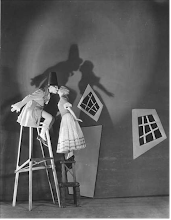
The true relevance of the level of faithfulness in adaptation is, in my opinion, trivial compared to other aspects of the piece. There are several evident differences between “The Theme of the Traitor and the Hero” and The Spider’s Stratagem, though most of them fall more on the technical aspect.
Although the plot is basically the same, their approach on it is very different. Borges’ story seems like a document with a certain sense of abstraction where we are shocked by the fine line that divides the hero and the villain, while The Spider’s Stratagem is more of a personal story. They both focus on this main topic that “The Theme of the Traitor and the Hero” proposes; yet Bertoluccis’ film has this element of the personal path of the main character in his film. Athos is both in search and in the shadow of his dead father. This idea I find very interesting, for it has been a recurring theme through the history of humanity. Starting in texts as ancient as the Genesis or much of Greek literature, the idea of a repetitive fate comes up, and in this case Athos is searching for the truth of that previous destiny, and simultaneously he is been haunted by it. This happens to such an extent that at the end of both pieces one could even argue if the main character himself is a traitor or a hero, because of the decision of holding back the dark truth about the murdered man.
Regardless, the main idea of both pieces is the meager difference that lies behind the curtains of a traitor and a hero. In the Scorsese film Taxi Driver this is very evident, as Robert De Niro, in the private life of his character, portrays a total villain, and ends up in a pedestal, while he missed dark fate of jail or death by an inch. To a certain extent all works of art are nothing but an expression of one side of the artist, a mere projection of the inner complexity of a human, and the truth is that we all have a traitor and a hero inhabiting our minds.



I agree that in Bertolucci's film the personal/psychoanalytic elements are as important, if not more, than the discussion of whether Athos pere was a hero or a traitor, or, the more Borgesian question whether one can actually distinguish between them. In fact, the one point I disagree with you is that I'm not sure that "the main idea of both pieces is the meager difference that lies behind the curtains of a traitor and hero." I think that by the end of the movie, the personal/psychoanalytic elements of the movie have swallowed up the Borgesian questions.
ReplyDelete